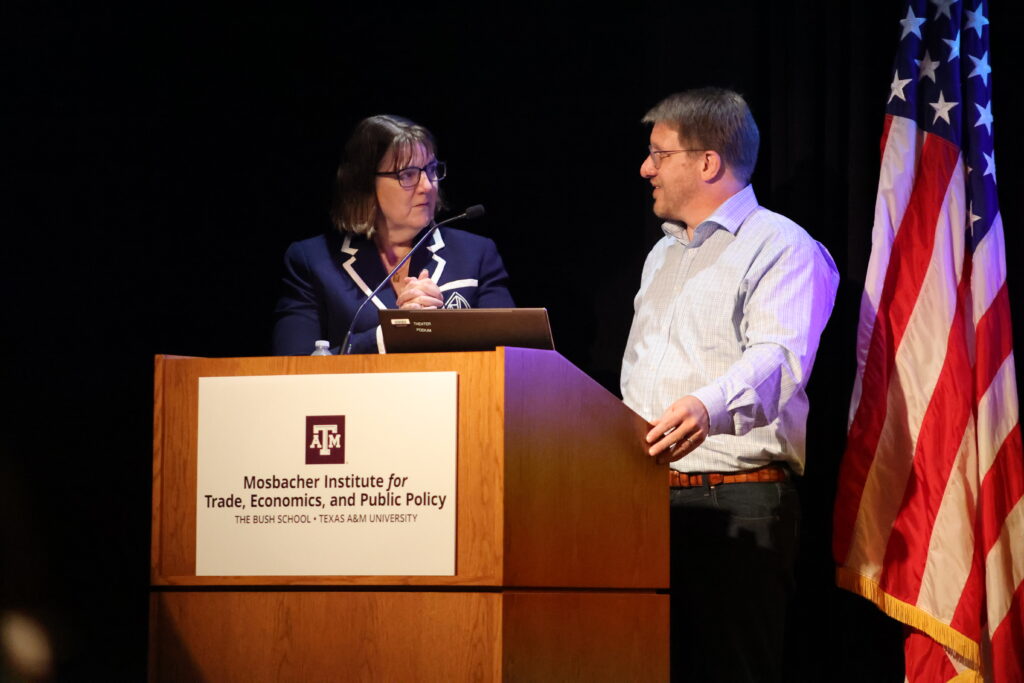
On April 10, 2024, Dr. Springer, a Managing Partner at Basis Policy Research and former distinguished professor at the University of North Carolina, Chapel Hill, presented an Education Policy Workshop on “Under Pr-ESSER: Revealed Preferences and Spending Patterns in Response to the Pandemic” at the George H.W. Bush Presidential Library.
View the event here: https://www.youtube.com/watch?v=GsTNMFk873s
In his talk, Dr. Springer posits that data on the Elementary and Secondary School Emergency Relief Fund (ESSER) provides a unique opportunity to study how school districts responded to the COVID-19 pandemic. Across the three working papers covered in the workshop, Dr. Springer and other collaborating authors studied how school districts responded to changing needs over time and how the proposed spending of ESSER funds compared to actual spending patterns.

In the first paper, the authors sample 114 public and 90 charter school districts to analyze funding allocation across human capital, such as school personnel, and structural capital, such as technology. This paper focused primarily on themes of topic prevalence across the sampled districts. The second paper shifted to focus on spending preferences and illustrated strong variation in spending priorities across public school districts. The final paper explores staffing and the “federal funding cliff” in North Carolina schools. The funding cliff term refers to the notion that ESSER funding was intended to be a one-time relief fund with clear start and end points, not a source of long-term support.
Dr. Springer’s studies found several interesting outcomes. First, the ESSER data allowed the authors to assess differences in the likelihood of spending on higher-cost items, such as major construction, compared to smaller-cost items, such as masks and other face coverings. The second paper found that 80% of school districts allocated ESSER funding to facilities and operations (F&O) costs. Further, the poverty rate is strongly associated with proposed spending on F&O. An important part of the lecture and final study was Dr. Springer’s assessment of how school districts approach the funding cliff, which significantly impacts teachers, students, and fundamental learning opportunities. This third paper found little difference between proposed and actual spending habits related to staffing and academia, which influence learning outcomes.

While the data provided a valuable inside look at spending patterns, Dr. Springer emphasized that drawing judgments on spending decisions is still difficult. When asked to comment on whether these decisions were “wise,” Dr. Springer said we won’t know for sure about the value and impact longevity of spending habits until more future data is released. Dr. Springer also addressed questions on how variation in spending might be related to prior issues in a school district and how we can draw causal conclusions about specific learning outcomes. While the studies did control for spending patterns of three years before the pandemic, Dr. Springer highlighted that there is still substantial work to be done regarding finer-grain correlations and that his team is working diligently to learn more about these relationships as more data becomes available.
Dr. Springer’s studies were presented in collaboration with the North Carolina Collaboratory, the North Carolina Department of Public Instruction, and the University of North Carolina, Chapel Hill.
The event was hosted by the Mosbacher Institute for Trade, Economics, and Public Policy at the Bush School of Government and Public Service at Texas A&M University. The Institute’s Education Policy Workshop series brings in noted academics who are invited to discuss their current research to increase the understanding of the research underlying current education policy.
